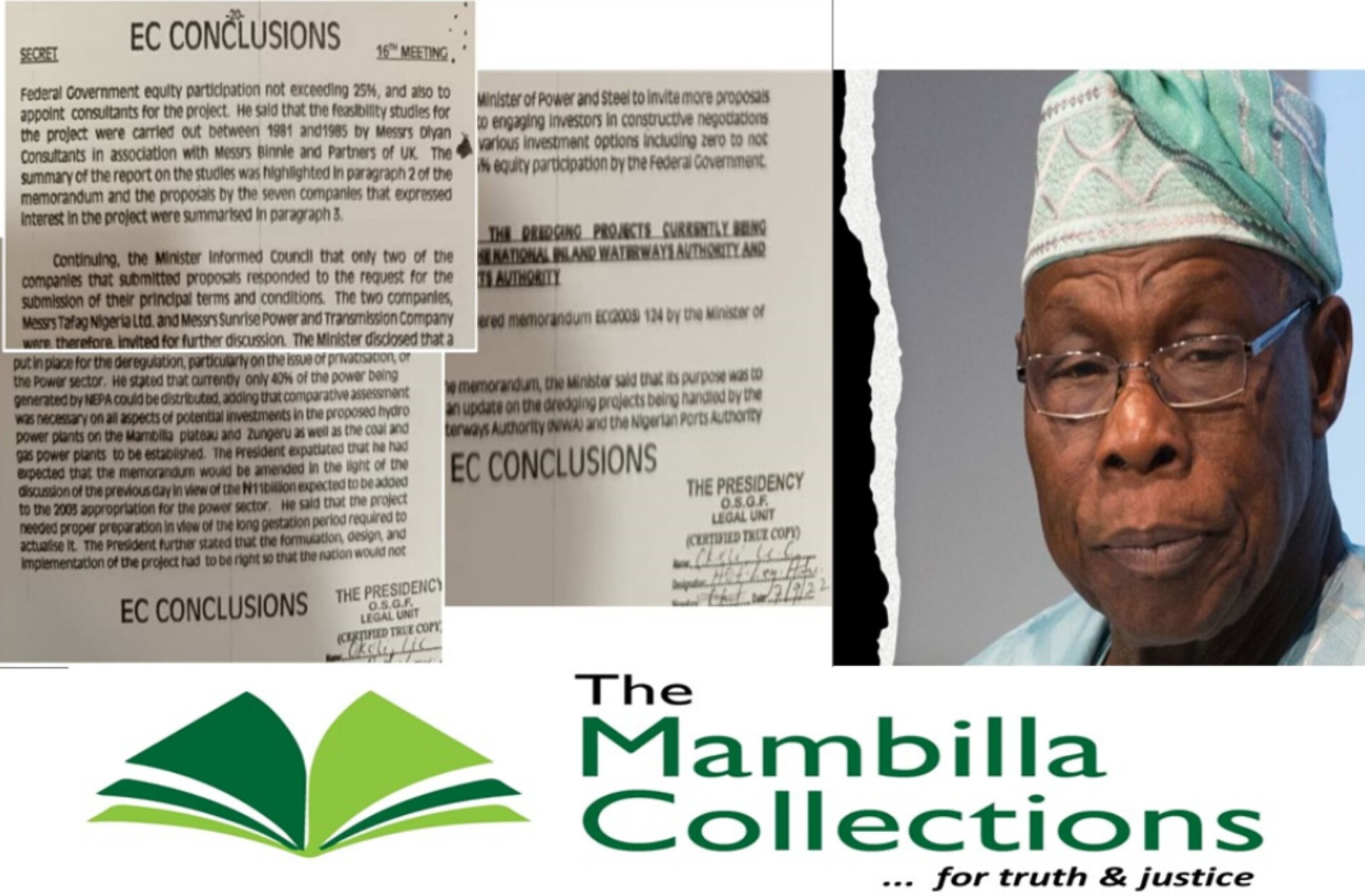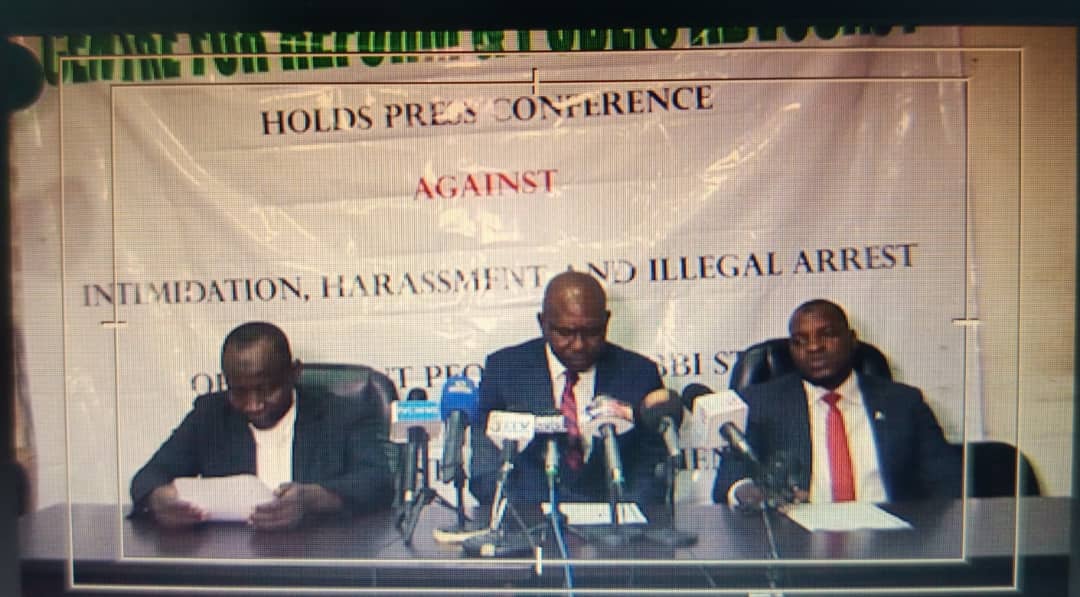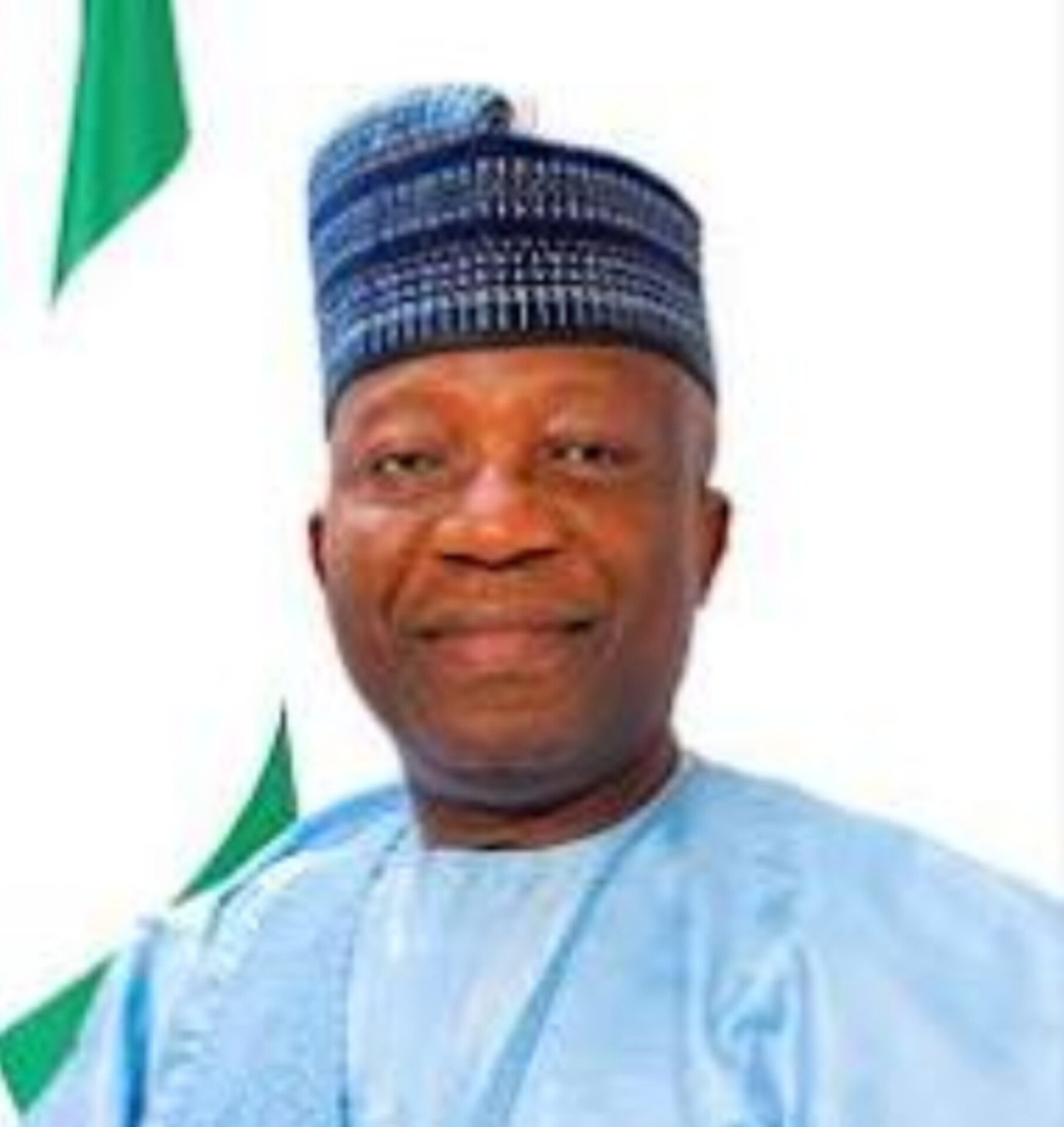By Abdullahi Mahmood,
You may have seen a bunch of photocopied documents labelled “EC Conclusions” and marked “16th Meeting” which have been flying about. We did receive them again in the circuit this morning and decided to take a deeper look at these and share this view with the public. These documents are also marked “Secret”, but they are no longer secret because they are being widely circulated to all and sundry. The documents boldly bear the stamp of the “Presidency, Office of the Secretary to the Government of the Federation” and was certified by its “Legal Department on the 7 September 2022”. They are the same documents that are referred to in Chief Olusegun Obasanjo’s letter to the Honourable Attorney General of the Federation, Barrister Lateef Fagbemi, SAN, in December 2023. They are the same documents that the former President Obasanjo brandished at his interview with journalists in late August 2023 and the same ones that he (Chief Obasanjo) would quickly toss before the anyone who cares to hear his attempts to clear himself of any blames or faults in respect of the lingering Mambilla Power Project crisis.
The readiness of the former president Olusegun Obasanjo to remain a major player in the Mambilla power project saga was reasserted by TheCable, a Nigerian news vendor which reported on Wednesday, 13 Dember 2023 that Chief Obasanjo “has informed the federal government that he is ready to testify for Nigeria ‘in any forum’ over the disputed Mambilla power contract”. This was within a few hours of the unannounced arrest of the former Minister of Power Dr Olu Agunloye by EFCC on same Wednesday. TheCable which is thought to be controlled by or affiliated to a former Minister of Power under the Buhari Administration also published: “Obasanjo pledged his ‘continued commitment’ to assist the government ‘by shedding more light on these matters as may be required of me’, adding, ‘I have therefore resolved to make myself available to testify in Arbitration or any forum should you consider it necessary in our national interest’”.

Seeing these “secret” documents in circulation again reminds one that Chief Obasanjo did not explain to the public or those to whom he circulated the suspicious “EC Conclusions” of the Federal Executive Council, FEC, that he (as President of the Federal Republic) did not conduct any FEC meetings for the rest of May 2003 after the 21 May 2003 meeting. And that, in fact, he did not conduct any FEC Meetings throughout the months of June and July 2003 and, not until about middle or late August 2003, did he conduct the first FEC Meeting but with new members of the FEC, most of who were not at the meeting of 21 May 2003. Chief Obasanjo has yet not circulated the Minutes of the meeting of FEC where the Minutes of the 21 May 2003 meeting were presented, amended, and adopted and has not stated when the undated “EC Conclusions” he is brandishing were extracted. He has also not yet disclosed that he knows that “EC Conclusions” are not the same as “Minutes of FEC Meetings”.
Contrary to Chief Obasanjo’s claim in his letter of December 2023 to President Tinubu’s Attorney General, Barr. Fagbemi, as published by TheCable, Ministers had statutory powers to award contracts in 2003, and if this was not satisfactory to the President or FEC, either of them had the power to cancel the contracts. As the Minister of the Federal Republic in charge of the Power and Steel Ministry, Dr Agunloye admitted that he awarded the Mambilla Power Project as a BOT contract at zero Naira cost to FGN in May 2003. The President or FEC had powers to cancel the contract and if they did, they were bound to communicate formally and officially such to the Minister which they never did to date.
Contrary to Chief Obasanjo’s claims in his public letter to President Tinubu’s Attorney General, Barr. Fagbemi, that he (Obasanjo) never knew the 2003 BOT Contract was ever awarded, the then Minister of Power, Sen Liyel Imoke, under President Obasanjo, on 3 September 2003 wrote Sunrise, the awardee, to repudiate the validity of the 2003 Mambilla BOT contract and later in meetings with Sunrise and its lawyers, he (Minister Imoke) said he would report back to the President as he was expected to do. Chief Obasanjo is also feigning ignorance of the following facts: that his own personal lawyer and bosom friend, legal luminary Chief Afe Babalola, SAN wrote to his (Obasanjo’s) Government in Feb 2005 that the 2003 Mambilla BOT contact was legitimate; that the then Attorney General of the Federation, Barr. Michael Aondoakaa, SAN wrote to President Yar’Adua in 2007 that the 2003 Mambilla contract was properly awarded, that the then Attorney General of the Federation, Barr. Abubakar Malami, SAN officially confirmed to President Buhari and Minister Fashola in 2016 and 2017 that the 2003 Mambilla BOT was legitimate, and that Chief Femi Falana, SAN also wrote to President Buhari in 2018 and 2020 that the BOT Contract was proper and legitimate.
As a matter of fact, the statutory power of a minister to award contracts without explicit approval of FEC was taken away by the same President Olusegun Obasanjo only in November 2005 with the new edict, the ICRC Act 2005. However, Dr. Gbolahan Elias, SAN had pointed out to FGN in 2018 that the ICRC Act 2005 was not made retroactive and could not be applied to the 2003 contract awarded by Minister Agunloye.
Verily, it is of public interest that Chief Obasanjo’s now customary defence to clear himself of wrongdoings in the Mambilla Power crisis or of alleged corruption during his eight-year tenure as stated over and over by him and especially by TheCable may be misleading because the “Yar’Adua power sector probe of the 2000 to 2007” roundly indicted the former President Obasanjo and all his Ministers of Power except Chief Bola Ige and Dr Olu Agunloye. Also, the former President Olusegun Obasanjo is yet to absolve himself from allegations of mismanagement of a cash grant of $16 billion (sixteen billion US Dollars, approximately N24 trillion, today) that he claimed was spent on power sector procurements, considering the Col. Dangiwa Umar’s “Notes on Obasanjo in respect of the power sector from 1999 to 2007” and the damning investigative report of The Socio-Economic Rights and Accountability Project (SERAP) of 2017 on the power sector titled “From Darkness to Darkness – How Nigerians are paying the price for Corruption in the Electricity Sector”.
Mr. Abdullahi Mahmood.
The Mambilla Collections.




